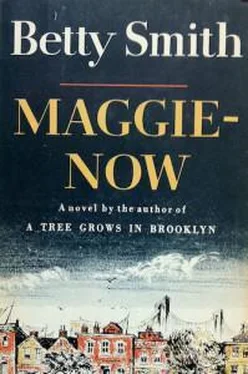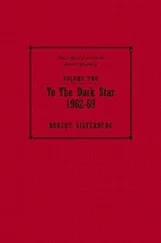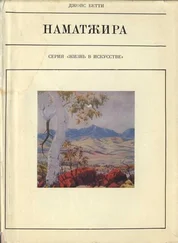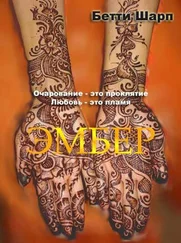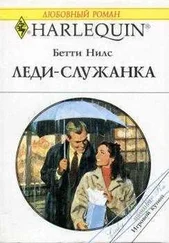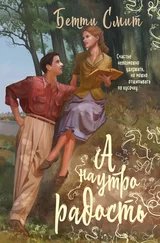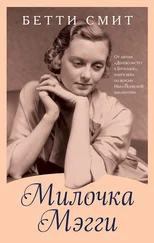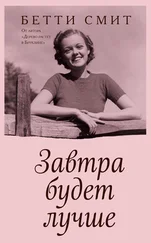Бетти Смит - Maggie-Now
Здесь есть возможность читать онлайн «Бетти Смит - Maggie-Now» весь текст электронной книги совершенно бесплатно (целиком полную версию без сокращений). В некоторых случаях можно слушать аудио, скачать через торрент в формате fb2 и присутствует краткое содержание. Жанр: Проза, на английском языке. Описание произведения, (предисловие) а так же отзывы посетителей доступны на портале библиотеки ЛибКат.
- Название:Maggie-Now
- Автор:
- Жанр:
- Год:неизвестен
- ISBN:нет данных
- Рейтинг книги:3 / 5. Голосов: 1
-
Избранное:Добавить в избранное
- Отзывы:
-
Ваша оценка:
- 60
- 1
- 2
- 3
- 4
- 5
Maggie-Now: краткое содержание, описание и аннотация
Предлагаем к чтению аннотацию, описание, краткое содержание или предисловие (зависит от того, что написал сам автор книги «Maggie-Now»). Если вы не нашли необходимую информацию о книге — напишите в комментариях, мы постараемся отыскать её.
Maggie-Now — читать онлайн бесплатно полную книгу (весь текст) целиком
Ниже представлен текст книги, разбитый по страницам. Система сохранения места последней прочитанной страницы, позволяет с удобством читать онлайн бесплатно книгу «Maggie-Now», без необходимости каждый раз заново искать на чём Вы остановились. Поставьте закладку, и сможете в любой момент перейти на страницу, на которой закончили чтение.
Интервал:
Закладка:
"I've been going to confession and communion ever since I was six; before I could read. It's. . it's always been there the feeling about it. I never think that I have to talk about my penance or my receiving."
"Perhaps she's more talk. rive than you, Margaret."
"Oh, I talk enough," acknowledged Maggie-Now. "It's just that u e talk ciii jerent about our faith."
"She may be different from you the kind of woman who likes to analyze everything."
Maggie-Na,w thought that over. "No," she decided. "She only talks that way about the faith. Not about other things." She paused while she searched her mind for an illustration. "Like, well, she lives down the block and she washes her hair like I do; she sits in the yard on a nice day and lets the sun dry it and then she brushes it and braids it like I do. But all she says is, 'Well, I washed my hair today.' And I say, 'So did 1.' And that's all. She doesn't tell me how much the soap costs and what time it was and how she felt and how her hair felt and how it's a good thing to wash your hair once a week. Because she's used to washing her hair the way I'm used to 'teeing a Catholic."
"Margaret, have you ever thought what it would be like to have another religion? A simple one where the minister doesn't wear robes, and lives like other men with a wife and children, and understands people's problems because he has the same problems, and who conducts the service in clear English and everything is clear and understandable?"
"Why, no. I've never thought about how it would be to have a different faith."
"Why not?"
"Well, I vvas born white. I never sit around and think how it would be if I had been born a colored person. I'm a woman. I never think about how it would be to be a man."
"You take your religion for granted, then."
"I guess I can't explain. I can only krZow."
"Tell me this, Margaret. No, don't tell me if you don't want to."
"I don't mind. What?"
1 — ', 1
'Understand: I'm not asking you all these questions because I'm curious but because ['m very interested."
"Oh, that's all right," she said.
"Don't you think having to make confession is an invasion of privacy? "
"Oh, no," she said with a half laugh. "Everybody has sins.
Mine are no different from other people's. When Father Flynn asks me exactly how many times I told a lie in the week, I never think it's. . what did you call it?"
"Invasion of your privacy."
"No. I never think that. He's supposed to ask."
"Now, Margaret, you re a Catholic."
"1 know." She smiled.
"Now that's all right for you. But if you had a child, maybe he wouldn't want to be a (atholic. Don't you think he ought to be allowed to choose his own religion when he's old enough?"
She was so astonished for a moment that she couldn't answer. Then she said: "Before a child is born, is it allowed to decide whether it will be a boy or a girl? When it wants its first nourishment do you let it starve until it's old enough to decide whether it wants milk or beer? Do you keep him without a name until he's old enough to pick out one for himself? When he's six years old do you let him decide whether he wants to go to school or not?
No. You give him milk, you give him a name, you send him to school and you give him a faith."
"I see." He got up and walked to the window and stood there looking out.
"Couldn't we talk about something else?" she asked timidly.
"Just one thing more, Margaret, and then we'll never talk about it again as long as we both shall live." He asked the question very carefully "If you were in love with a Protestant, w ould you give up your religion to marry him?"
"I wouldn't have to. We could. . I mean, a person could marry a Protestant with a Catholic ceremony. But he'd have to say that he wouldn't interfere with her religion and that their children would be brought up in the Catholic faith."
"But the next morning she'd expect him to go see the priest and be converted."
"Oh, no," she said quickly. "It's not as easy as that. It takesa 1 236 1
long time. You have to have the faith."
"How do you mean?"
"I don't know words to explain it. If you have it, you just know it."
"Margaret, look at me." She got up and went to him and looked clearly and truly into his eyes. "Do you love me?"
"Yes," she said simply.
"Could you, if we married, take my religion and bring up our children in my religion? Could you?" She shook her head dumbly. 'Couldn't you love me enough to do that?"
"I could want to," she said, "and I could say I would and mean it w hen I said it. And I could try very hard. But inside, I couldn't change."
"Like you couldn't change into a Negro or change into a man."
"You wouldn't like me, would you," she asked beseechingly, "if I was any other way than the way I am?"
"I don't suppose I woulcl," he said in an offhand way.
She knew it: was all over. Slle had a feeling of numbness.
"Would you like some coffee?" she asked timidly.
"No, thank you." His tone was brusque.
They talked a little while longer about the w ar and rising prices and the coming of prohibition, and his language was academic and strained the way it was when he spoke to strangers.
After a while, he thanked her politely for the nice dinner and expressed regret that he hadn't met her father.
He said good-by and left without making arrangements for another meeting. She stood at the window and witched him until he was out of sight. Only then did she notice that he had forgotten his book. It was lying on the lounge.
She picked it up. It was The Book of Everythin~r,'. She opened it. On the flyleaf he had written: To AiLlargraret, with love, Claurie.
She cried, then.
1 ~,7 1
a<,< CHAPTER THIRTY-TWO A
SHE knew he wouldn't collie back. ~ et, she thought that if sue admitted the fact and suffered over it she would, paradoxically, be rewarded by his return. So she bathed and dressed carefully each afternoon, and, after supper, she sat at the window and waited. Pat often sat with her and spoke enthusiastically of.7\1rs. O'Crawley, Mick Mack's landlady, who was trim and tidy and forty-two and owned property. He was lyrical about the Easter dinner she'd served: baked ham with pineapple slices and candied sweet potatoes and creamed onions and peach shortcake.
"All home-cooked, you understand," he said. "No bakery stud and nothing out of a can. And why can't we have candied sweet potatoes sometime?"
Maggie-Now said, yes, and, no, and that's nice, not really listening to him but making the sounds of interest and companionship. Evidently, Denny hadn't told him that Claude had been there for Easter dinner, for Pat made no comment.
Although Maggie-Now had not forbidden Denny to tell of Claude's visit, he probably found it expedient to say nothing on account of the kite. It was broken the next day and Denny said his father had broken it, but under pressure Denov admitted that he himself had broken it.
"Why did you lie, then?" she asked.
"Because I didn't want to get scolded."
"Oh, Denny," she sighed, "you mustn't lie. If it was broken by accident, I'd feel sorry along with you, but if you broke it on purpose, you deserve a scolding and should be man enough to take It."
She worried a little bit about Dcnny. He was inclined to tale the easy way out of things. I-le never faced up to an!
Читать дальшеИнтервал:
Закладка:
Похожие книги на «Maggie-Now»
Представляем Вашему вниманию похожие книги на «Maggie-Now» списком для выбора. Мы отобрали схожую по названию и смыслу литературу в надежде предоставить читателям больше вариантов отыскать новые, интересные, ещё непрочитанные произведения.
Обсуждение, отзывы о книге «Maggie-Now» и просто собственные мнения читателей. Оставьте ваши комментарии, напишите, что Вы думаете о произведении, его смысле или главных героях. Укажите что конкретно понравилось, а что нет, и почему Вы так считаете.
